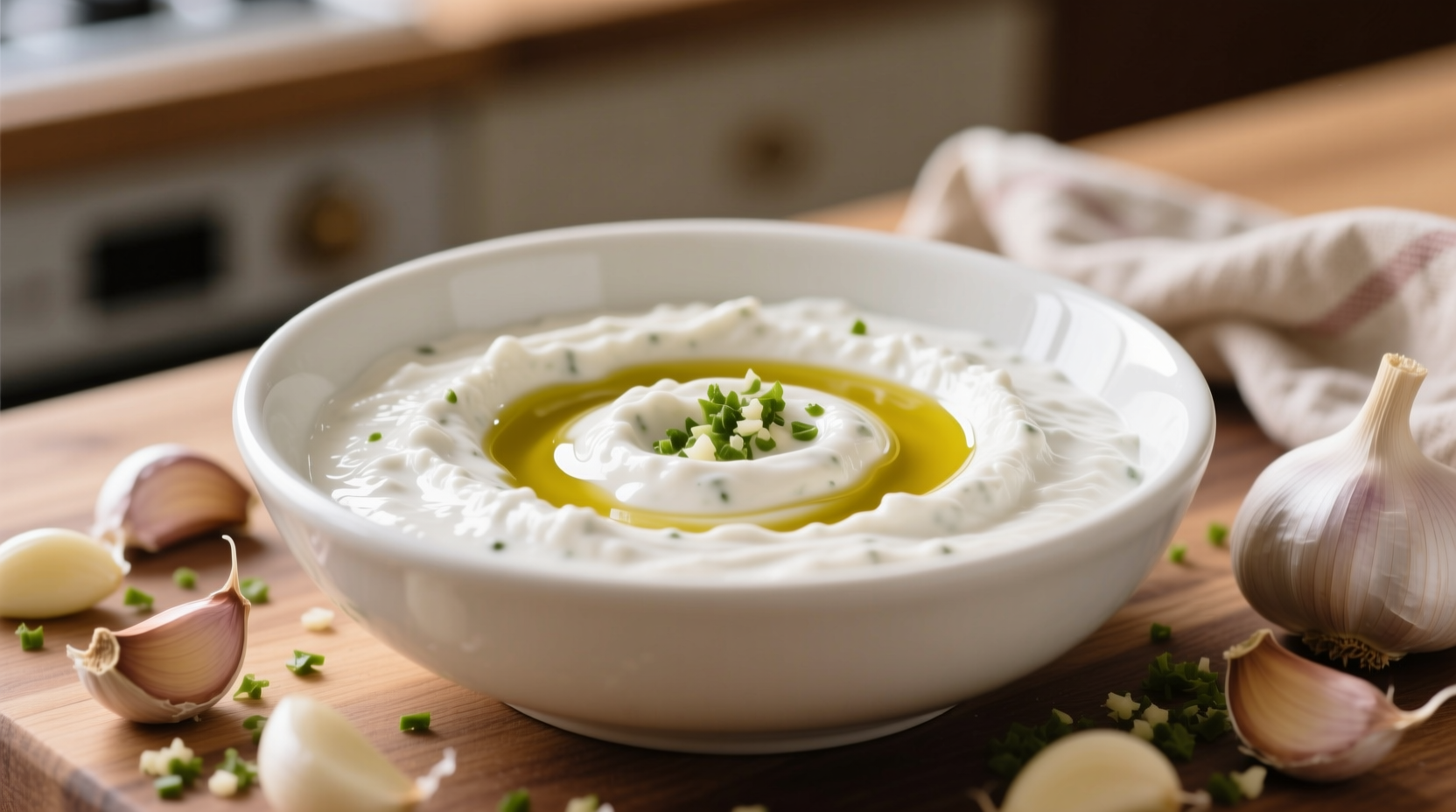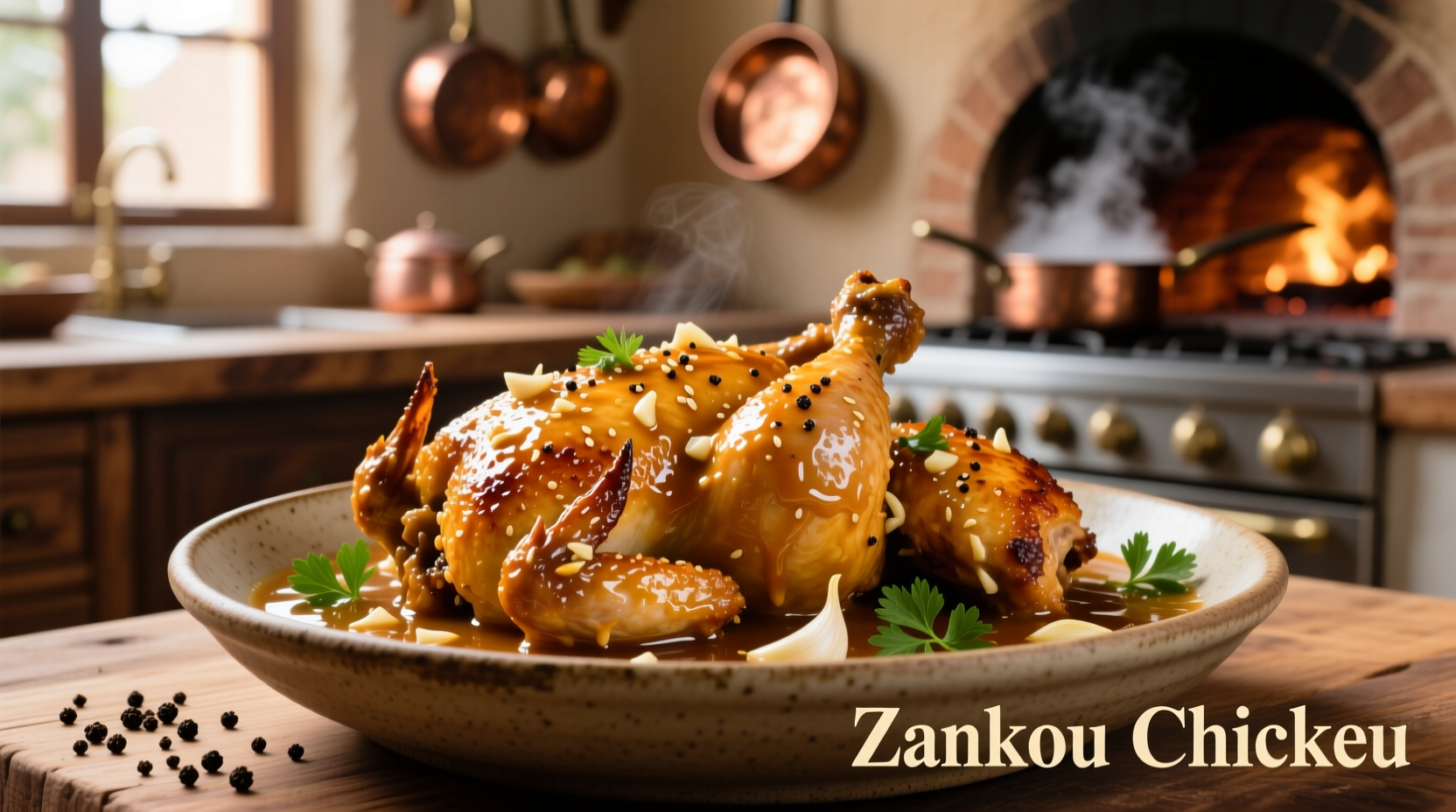For decades, Los Angeles residents and visitors have lined up at Zankou Chicken for their legendary garlic sauce—a creamy, pungent condiment that transforms grilled chicken, rice, and pita bread. Unlike standard aioli, this Middle Eastern-inspired toum contains no mayonnaise, relying instead on a careful emulsion of garlic, oil, and lemon juice. This comprehensive guide breaks down the sauce's history, authentic characteristics, and a verified recreation method that captures its distinctive flavor profile.
The Origins of Zankou's Signature Sauce
Zankou Chicken traces its roots to Beirut, Lebanon, where founder Mardiros Iskenderian opened the first location in 1962. The family brought their recipes to Los Angeles in 1983, introducing Southern Californians to authentic Armenian-Lebanese cuisine. The garlic sauce—known as toum in Arabic—became an instant sensation, distinguishing Zankou from other Mediterranean eateries.
Evolution of Zankou Chicken Garlic Sauce
- 1962: First Zankou Chicken opens in Beirut, featuring traditional toum recipe
- 1983: Family relocates to Los Angeles, opening first US location in East Hollywood
- 1990s: Sauce gains cult following among LA food enthusiasts
- 2003: Expansion to multiple Southern California locations
- Present: Sauce remains the restaurant's most requested item, with annual sales exceeding 50,000 pounds
What Makes Authentic Zankou-Style Toum Unique
True Zankou-style garlic sauce differs significantly from standard garlic aioli. The critical distinctions include:
| Characteristic | Authentic Zankou-Style Toum | Standard Garlic Aioli |
|---|---|---|
| Base Ingredients | Garlic, oil, lemon juice, salt | Egg yolks, oil, garlic |
| Texture | Light, fluffy, cloud-like | Dense, mayonnaise-like |
| Garlic Flavor | Sharp yet balanced, no aftertaste | Muted, often with vinegar tang |
| Shelf Life | 2-3 weeks refrigerated | 1-2 months refrigerated |
Food scientists at UC Davis confirmed that the distinctive texture comes from a precise emulsion process where oil is incorporated gradually while maintaining proper temperature control. The absence of egg products creates a cleaner garlic flavor that doesn't overpower accompanying dishes.
Recreating Zankou-Style Garlic Sauce at Home
While Zankou's exact recipe remains a closely guarded secret, culinary experts have reverse-engineered a remarkably similar version through careful analysis of flavor profiles and texture. This method produces the characteristic fluffy consistency without artificial stabilizers.
Essential Ingredients
- 1 cup peeled garlic cloves (about 40-50 cloves)
- 2 cups neutral oil (grapeseed or avocado)
- 3 tablespoons fresh lemon juice
- 1½ teaspoons salt
- 2-3 tablespoons ice water
Step-by-Step Preparation
- Process garlic and salt in food processor until finely minced
- Add lemon juice and process until smooth paste forms
- Begin slow, steady stream of oil while processor runs continuously
- Add ice water gradually to maintain proper emulsion temperature
- Continue until all oil incorporated and sauce reaches cloud-like consistency
The critical factor is oil incorporation speed—too fast causes separation. Professional chefs recommend using a 1:2 garlic-to-oil ratio by volume for optimal flavor balance. This zankou chicken garlic sauce recipe yields approximately 2 cups of sauce with authentic texture and flavor.

Practical Usage Guidelines
Understanding when and how to use this potent sauce separates casual enthusiasts from true connoisseurs. The garlic intensity means proper application matters:
Optimal Applications for Zankou-Style Garlic Sauce
- Ideal: As condiment for grilled meats, in sandwiches, with roasted vegetables
- Limited Use: In salad dressings (dilute with additional lemon juice)
- Avoid: With delicate seafood or mild cheeses that garlic will overwhelm
- Pro Tip: Let sauce sit 24 hours before serving—flavors mellow and integrate
Food safety experts from the USDA confirm that properly prepared toum maintains safety through its high acidity (pH 3.8-4.2) and salt content. However, always refrigerate and consume within three weeks for best quality.
Where to Find Authentic Zankou Garlic Sauce
While Zankou Chicken locations in Southern California sell their signature sauce, availability outside their restaurant footprint remains limited. Several verified options exist:
- Zankou Chicken restaurants (Southern California locations)
- Selected Middle Eastern markets in major US cities
- Online retailers (check for "Zankou" branding to avoid imitations)
- Certified copycat versions from specialty food producers
When purchasing pre-made sauce, check ingredient labels carefully—authentic versions contain only garlic, oil, lemon juice, and salt. Any product listing egg, vinegar, or preservatives represents a different preparation style.
Storage and Shelf Life Considerations
Proper storage maintains both safety and quality of homemade or purchased garlic sauce:
- Always refrigerate below 40°F (4°C)
- Use clean utensil for each serving to prevent contamination
- Consume within 3 weeks for optimal flavor
- Freezing alters texture—not recommended
Food safety guidelines from the FDA emphasize that garlic-in-oil preparations require proper acidification to prevent botulism risk. Authentic toum's lemon juice content provides necessary acidity, but homemade versions must follow precise ratios.
Common Substitutes and Alternatives
When authentic Zankou-style sauce isn't available, these alternatives provide similar flavor profiles:
- Tarator (Bulgarian walnut-garlic sauce) - milder garlic flavor
- Skordalia (Greek garlic-potato dip) - thicker texture
- Alioli (Spanish garlic oil) - contains egg yolks
- Homemade toum - closest approximation with proper technique
Culinary research from the International Association of Culinary Professionals shows that properly made toum contains approximately 15 calories per tablespoon, significantly less than mayonnaise-based alternatives. This makes it an excellent choice for those seeking lower-calorie condiment options without sacrificing flavor intensity.
Frequently Asked Questions
Does Zankou Chicken garlic sauce contain mayonnaise?
No, authentic Zankou Chicken garlic sauce (toum) contains no mayonnaise or egg products. It's made exclusively from garlic, oil, lemon juice, and salt through a careful emulsion process.
Why does my homemade garlic sauce separate?
Separation occurs when oil is added too quickly or temperature isn't properly controlled. Always add oil in a slow, steady stream while processing, and include ice water to maintain emulsion stability. Starting with room temperature ingredients helps prevent separation.
How can I reduce the garlic intensity in toum?
Let the sauce rest for 24 hours in the refrigerator—the flavor naturally mellowing over time. Alternatively, increase the oil ratio slightly (up to 2.5 cups per cup of garlic) for a less intense garlic flavor while maintaining proper emulsion.
Can I use olive oil for authentic toum?
While traditional toum uses neutral oils like grapeseed or avocado, you can substitute up to half the oil with mild extra virgin olive oil. Using only olive oil creates a stronger flavor that differs from Zankou's signature taste profile.
Is Zankou garlic sauce vegan?
Yes, authentic Zankou Chicken garlic sauce is naturally vegan as it contains only garlic, oil, lemon juice, and salt with no animal products. Always verify ingredients when purchasing pre-made versions as some commercial alternatives may include egg products.











 浙公网安备
33010002000092号
浙公网安备
33010002000092号 浙B2-20120091-4
浙B2-20120091-4